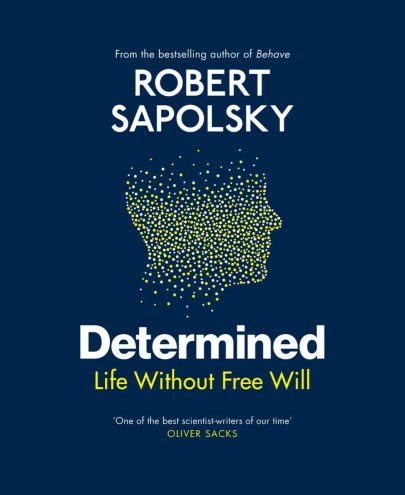May 15, 2016 Books
Something loud seemed to be happening in the ASB Theatre. The doors were opening and children were running out. If they had been less over-excited and giggly I would have wondered if they were fleeing something, because they were the fastest moving objects I had seen in that building since forever. It turned out they were running to Liz Pichon‘s signing queue, which had assumed biblical proportions by the time I turned round to look for it. I do not know Pinchon. She seems to have occurred since my children aged out of being children. “It was a good session, then”, I called out to two boys, circa nine years old. “IT WAS AWESOME”, they said. The doppler effect cut in as they passed me. Grown ups were beginning to assemble for Marlon James, as well they might.
James is one of the reasons you go to a writers festival: to hear the person you couldn’t invent say the things you couldn’t have said, in non-stop “I’ve been doing this twice a week since I won the Booker, it hasn’t got boring yet” profusion.
This was another knockout day. Since I mean that almost literally, I may not be writing it up at quite such length as yesterday. Marlon James. Bloody hell. This needs to be got out of the way: I reviewed A Brief History Of Seven Killings last year, from a position, as I failed to admit to myself at the time, of having read it too damn fast and not really got it. I believe I used the locution, “the book is certainly worth experiencing.” Just take me out and shoot me; but do it after I’ve had time to read the thing again, if you wouldn’t mind. That means not soon. If you’ll leave me an extra couple of days I’ll try to use them on a rematch review, which will either be about how this vast book is a bastardised mess of pretentious nonsense, or about how genius walks among us. I’m afraid probably the latter. James is one of the reasons you go to a writers festival: to hear the person you couldn’t invent say the things you couldn’t have said, in non-stop “I’ve been doing this twice a week since I won the Booker, it hasn’t got boring yet” profusion. On that Booker thing, Noelle McCarthy asked him if the dust had settled. “I don’t think it settles until Booker prize-winner means somebody else. Every time I write a facebook status now it makes a headline somewhere”.
“Well especially given what you post.”
“I’m trying to be a kinder, better person. It doesn’t seem to be working”.
He has characters who exist because he needed extra bodies in the bar when existing characters walked in. Sometimes those bodies come to life. Noelle – just an excellent chair, did I mention, right down to verbally destroying someone whose phone went off without breaking the rhythm of the question she was halfway through – interjected, “The book is a symphony of dynamics”, which I swear she made sound natural and not like a line she’d prepared earlier; “I imagine the nightmare would be to have characters who sound like each other.”
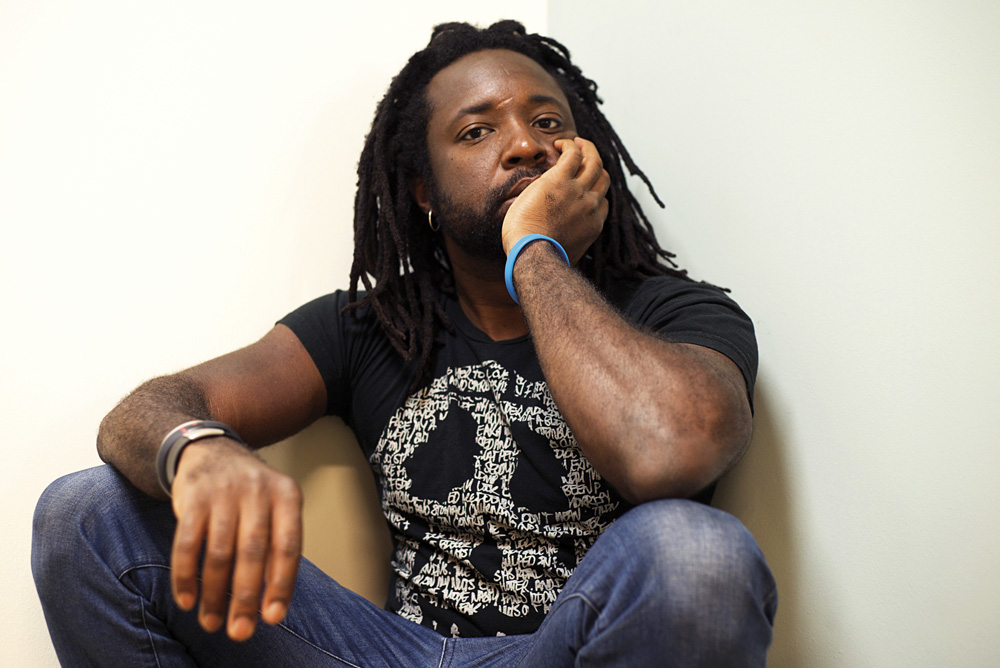
“Oh god.” Brief History has, I forget, how many first person narrators, but it’s at least in the high teens. “I had charts up on the wall to make sure that didn’t happen. I’m very interested in voice, I do very technical things to distinguish them…”
This festival, writers festivals generally, are so interesting precisely because high intelligence takes 74 different forms.
It was a solid hour of intelligent, dense commentary on how to write and how this book and why. I think I used the word “intelligent” maybe 74 times in yesterday’s post. Sorry. Marlon James has a way to stop this sort of thing happening, probably. This festival, writers festivals generally, are so interesting precisely because high intelligence takes 74 different forms and 740 forms more; but I’m not finding the vocab to differentiate them adequately. James’ and McCarthy’s were well in sync: quick minds throwing out dense ideas at speed.
Later in the day I met a woman who’d come up from Wellington for one session today and one tomorrow. “Only those?” I asked. “There’s so much going on!” “Yeah”, she said. “But one a day fills my head very nicely.” I am happy attempting to live at the spectrum’s other extreme, but I have to admit I see the appeal; I could have spent this day digesting James. A couple of final quotes: “I read my way out of writing problems. It’s a nice way of saying I rip people off”. “A lot of the time with sex and violence you see failure of nerve. You have to risk going too far. Or you get what I call space break sex.” He riffed a sample of such sex scenes, which I reproduce here by not doing so. “You lose your visceral moments”.
On the way back in for the next session I met a nice elderly woman who clocked my name tag and told me, “I read some of your reviews. They’re very clear. I agree with them sometimes.” This is actually the best reviewer compliment I’ve ever had. I sat down next to another woman who had just been to hear Mary O’Hagen, and said I had to, had to, had to read Madness Made Me. She seemed switched on, so I report this for your reference. The new session was John Boyne, chaired by Catriona Fergusson, who was looking awfully like Guy Somerset. A late chair substitution. This session has almost been blotted out in my memory by the way it ended, but looking over my notes I’m reminded that it was focused and full of good questions.
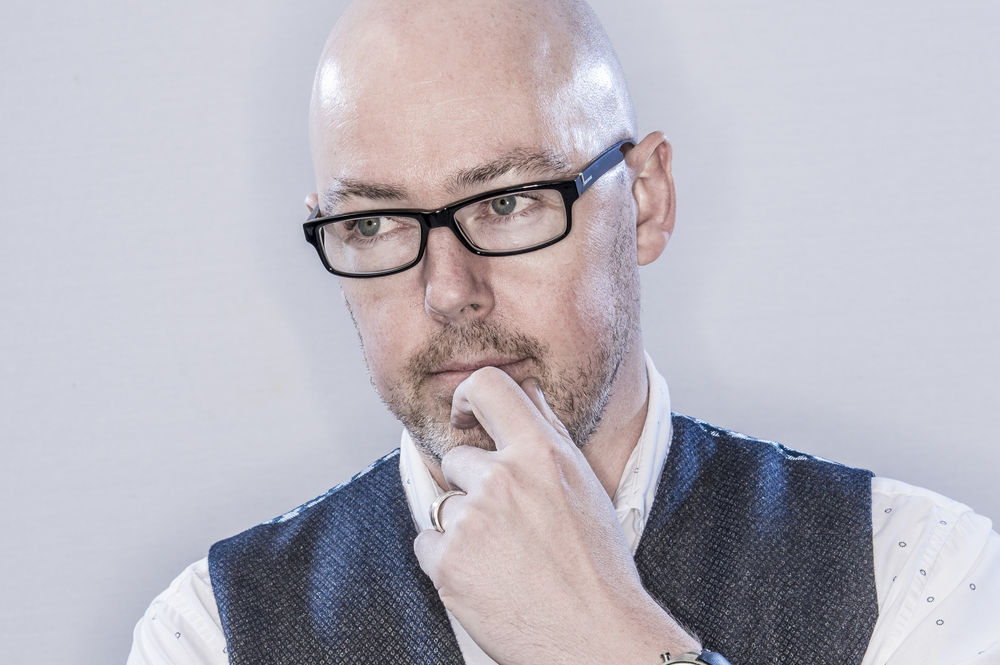
Boyne has a recent novel about the Catholic Church’s sexual abuse – I was about to use the word “scandal”, but let’s go with “crimes”. He’s Irish, and this was his first novel set in Ireland. “If you come from a small country, I bet a lot of New Zealand writers have found this, if you don’t write about your country people are constantly asking you why not. It’s a big world out there.” He talked about the loneliness of priests, and the need to understand why crimes happen if you want to stop them happening again; it was not quite an apology for displaying empathy for child abusers, but you could see Boyne anticipated being challenged on the point. He also told us, without ever saying the words, that he had been a priest’s abuse victim himself: the way he quietly moved straight to the tacit assumption that we all knew what had happened to him was in itself devastating.
This led to the question time moment when a teenage girl, so soft-spoken she was very nearly silent, came up to the mike and asked – I can’t even remember what she asked, because after she got an answer, she screwed up her nerve and asked Boyne what she really wanted to ask, which was how she should deal with having been sexually abused as a child. She was going to university soon and she found it hard to form relationships with people, and she thought maybe she needed to get herself sorted out. He told her,
1) That the fact that she could stand up and ask this question in a crowded hall suggested she was better at dealing with people than she realised. (Audience applause).
2) That you have to make a choice not to let an event like this define you.
He meant so well. I wanted to bite him. He had never had something like this happen before, I found out later; he was scrambling for the answer that would work on the spot in the 30 seconds he had. So, fair enough, writers should not have to be fonts of emergency wisdom at zero notice, and sometimes when a decent person opens his mouth and tries to do the right thing what actually happens is that he hands an abused girl a euphemism for “get over it and move on”. The session was done and the girl vanished in the crowd. I hope to hell someone took her aside and said, “Find a counselor you trust, take your time and don’t stop with the ones who don’t get you, and when you find the right person, take all the help from them you need. The right amount is however much it takes. Don’t carry this on your own.”
I have never heard an extended discussion about Israel which did not end up becoming an argument. But this was not just a debate, it was a sophisticated adult geopolitical debate about things that matter.
I am sounding like Oprah, and also like the hanging judge of I-know-better town. I would have screwed the moment up as well, I imagine. Anyway. The next session was a jolly little trip through the history of Israel. More hanging judge comments await, though this time they will be awarded to members of the audience. Our writer: Yossi Alpher, former Mossad official, Tel Aviv University academic in strategic studies, and advisor to Ehud Barak during the 2000 Camp David summit. As high powered a geopolitical analyst as you will meet, even if you move in the circles where such people collect, which most of us don’t. He was chaired by Jeremy Rose, of RNZ’s Mediawatch.
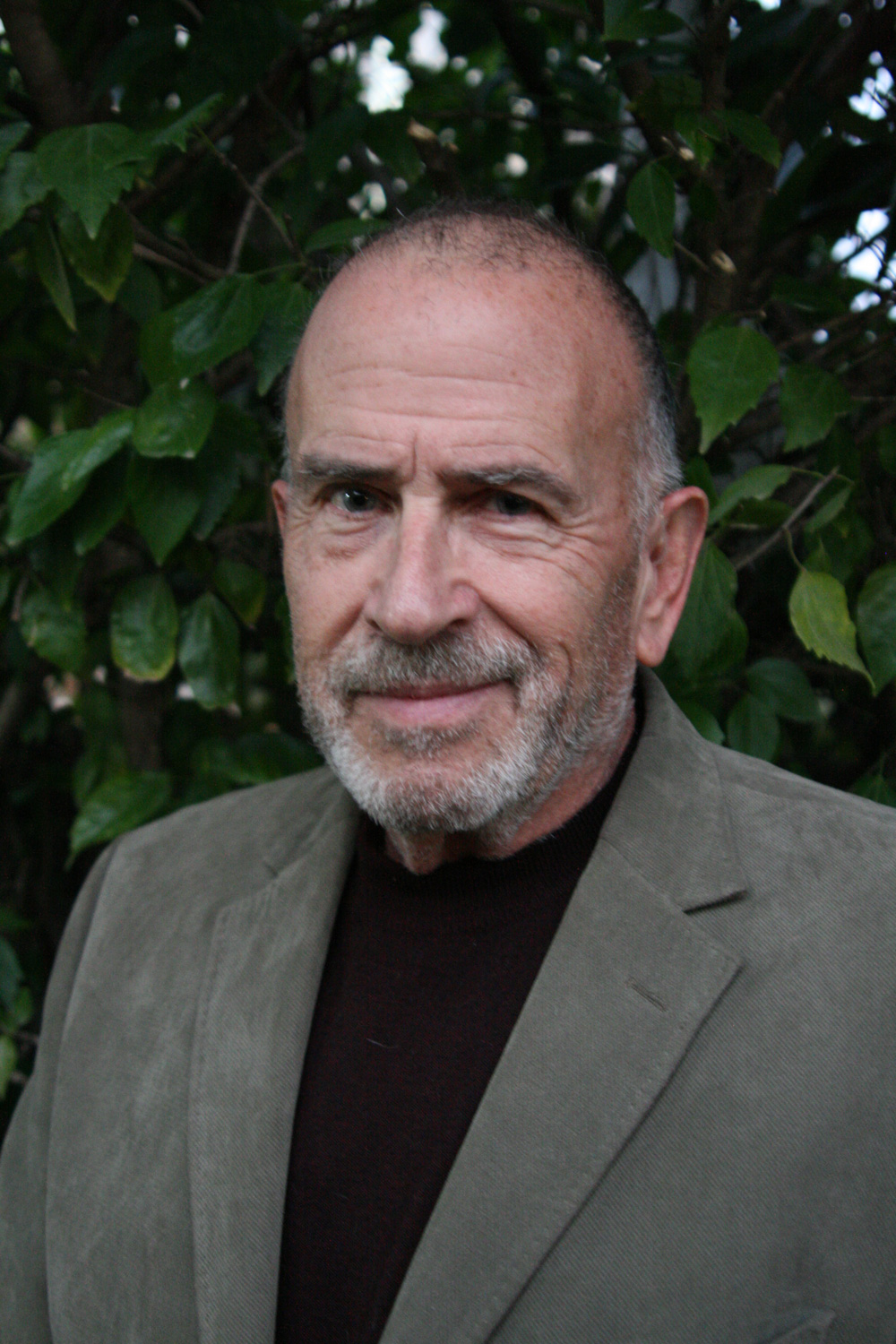
The discussion centered on David Ben Gurion’s doctrine of the periphery: Israel’s strategic decision, early in its history, to look for allies immediately beyond the ring of hostile Arab nations encircling it. I knew nothing about this, in any detail at all, which is why I so appreciated the festival’s selection of a chair capable of asking highly detailed, highly specific questions. This session was an education in history, policy, and strategy; it was also a courteous but fierce engagement between profoundly different views of Israel’s history and current policies. It was fantastic. I have never heard an extended discussion about Israel which did not end up becoming an argument, especially between Israelis, who are generally, by New Zealand standards, exceptionally robust debaters. But this was not just a debate, it was a sophisticated adult geopolitical debate about things that matter, and which (the Palestinian question came up, of course it did) are going to go on mattering. I was very glad my 17-year-old son was in the room for it.
Naturally, audience members got upset. From what I could gather afterwards, a lot of this was dear old Kiwi good manners: Alpher was the writer on the stage, what was Rose doing challenging him? When Alpher – eventually – got visibly angry, though without at all losing control, the audience discomfort was palpable. We don’t upset our guests!
You do not boost someone’s intellectual credibility by being scared to ask them questions. You do it by pushing them, politely, and giving them the chance to demonstrate that they know their stuff.
God save us from our idiot national courtesy. Alpher is a seasoned international diplomat and, not to mince words, a former spy for an agency famous for getting its hands dirty. We were fortunate to have him in the room. To let him make a case on Israel’s highly contentious history unchallenged would have been a moronic waste of an opportunity to learn, and it would also have been rude: you do not boost someone’s intellectual credibility by being scared to ask them questions. You do it by pushing them, politely, and giving them the chance to demonstrate that they know their stuff. Alpher will have nothing to do with the Palestinian ideal of the right of return, and he thinks the one-state “reality” – “I do not use the word solution, it is not a solution to anything, it is an unfortunate reality and it is going to be the future” – is a disaster in the making. Thanks to Rose, I have a much clearer sense of the internal logic of these views. He did his job. This was a great session. Coming out of the theatre afterwards, I overheard a woman saying , “That man is anti-Israel, he is not a real Jew”– this will be news to Rose, I imagine, who is, in fact, Jewish – “and it’s a disgrace the festival gave him the job”.
The disgrace is that we have this sort of bigotry in New Zealand. You can dislike Israel’s policies and not be anti-Israel. You can also be anti-Israel, not that Rose appears to be, and still be a Jew. And the festival, by asking Rose to run this session, gave us a first rate opportunity to see a major Israeli intellectual tested on important questions. He was formidable. Please grow up, people.
So that was three sessions. It was now coming up on 3 in the afternoon and I was reeling slightly. The next session was where I met the one-session-a-day Wellingtonian. It was also the densest, fastest-moving, most idea-rich hour of my festival to date. And it was also, taken in concert with the previous session, a sort of bizarre potted demonstration of gender essentialism. I had just spent an hour listening to two impressive men conduct an intense debate about armies and guns and national borders. Now I got to spend an hour listening to two impressive women conduct an intense investigation of feelings and relationships and creativity. I am not big on the idea that gender dictates much; I am not even sold on the idea that gender strictly exists. But the Men-are-from-Mars people would have had fun with this situation. Assuming their heads didn’t explode from too much information.
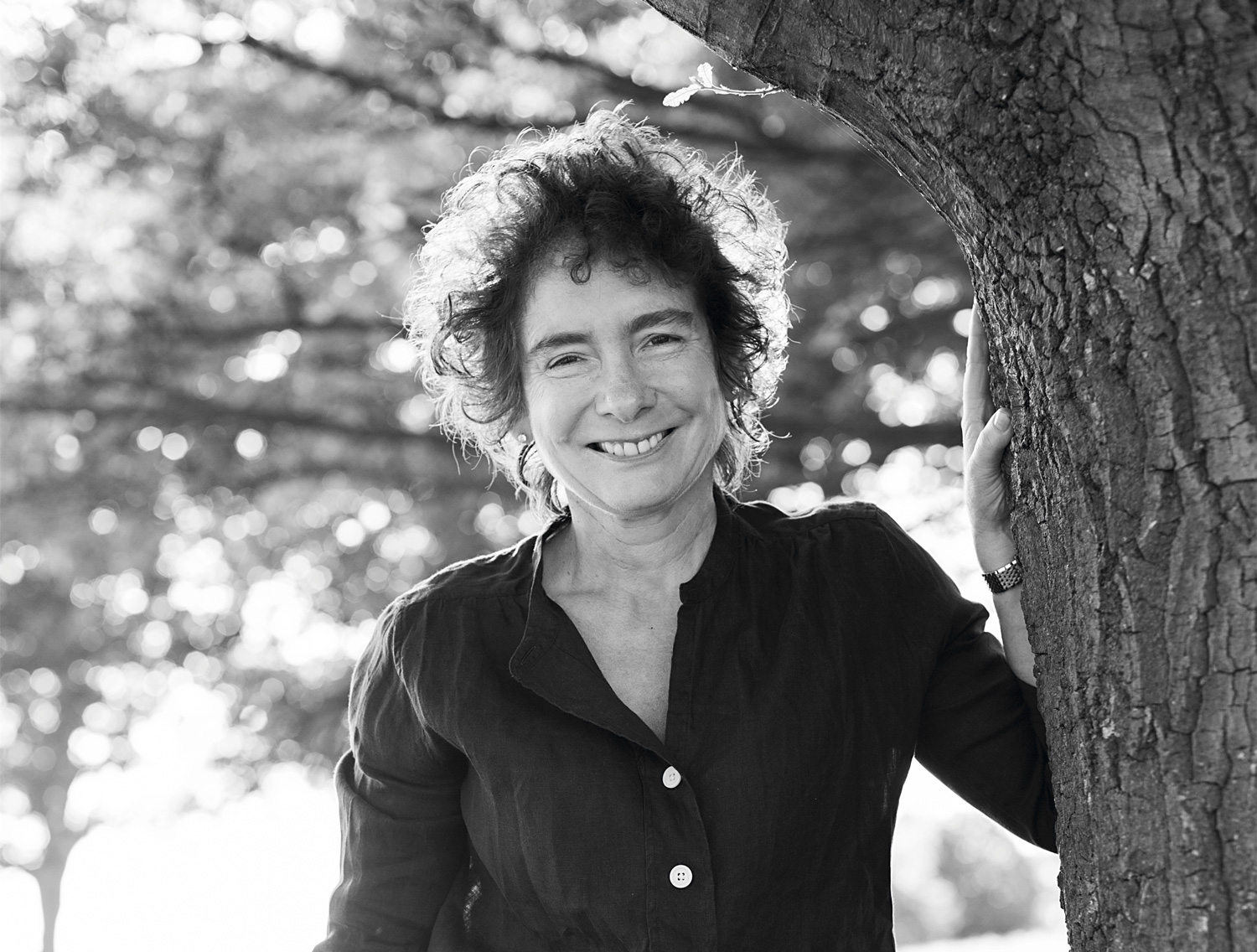
Jeanette Winterson and Susie Orbach. Oh. My god. You will notice I did not say very much about the details of the Alpher/Rose argument. That’s partly because this damn blog post is going on just as long as the last one did, but mostly because so many of the details flew past faster than I could write them down. The same thing happened here, only it happened on steroids. Winterson: novelist, survivor of damaging upbringing, literary evangelist, speed talker. Orbach: feminist icon, psychotherapist, embodiment of calm. They were on stage without a chair, and also without chairs, in that they spent the whole session standing – Winterson: “I was investigating the sight lines from the back of the room and I’m not sure you could see us if we sat down, and let’s face it, we’re hobbits”. I would certainly not back Sauron against either one of them.
“Creativity is being able to read yourself as a function as well as a fact. You can change the story, because you are the story. This is not New Age claptrap. This is how it works.”
The session was billed as a riff “with the audience and also with each other” on the subject of madness and creativity. It was that. It was also, and primarily, a therapy session, conducted with fierce openness and nothing seemingly off limits, with Winterson as subject and Orbach as therapist. “This wasn’t the plan, it just seems to be happening”. They’re married, by the way. The level of initimacy and mutual knowledge and considered thought on display was frankly staggering. I could not capture a fraction of it. I’m afraid I’m about to use the phrase “you had to be there”. So pleased I was. Fragments:
Winterson: “Creativity is being able to read yourself as a function as well as a fact. You can change the story, because you are the story. This is not New Age claptrap. This is how it works.”
Orbach: “We have otherness inside us. We have other aspects of self. Creativity is the attempt to reach aspects” (I think she said aspects, it might have been agents, and it might have had specific therapeutic meaning, I was writing as fast as I could) “of yourself that you can’t reach in other ways”.
Winterson: “A work of art is a love letter to the audience. It’s the attempt to reach the ideal listener, even if it’s only one person”.
(A brief aside: when I said I was too tired to do justice to Vivian Gornick yesterday, one of the things I was skipping over was her discussion of existential loneliness and the quest for the perfect other. Having been taught by Keats and Wordsworth and especially her mother to look for an ideal perfect friend, which she and especially her mother took to mean a man, she eventually decided that she liked being single. But that she did want the perfect friend, and that for her, this was in fact the writing process — or the implied audience of the process, perhaps occasionally incarnated in this or that reader who just got something. Winterson’s comment was one of half a dozen times this idea has come back to me in the last day.)
Okay, it appears to be alarmingly late at night and there are more sessions tomorrow. Winterson and Orbach deserve more than this. I suppose this means I’m going to need to buy their books.
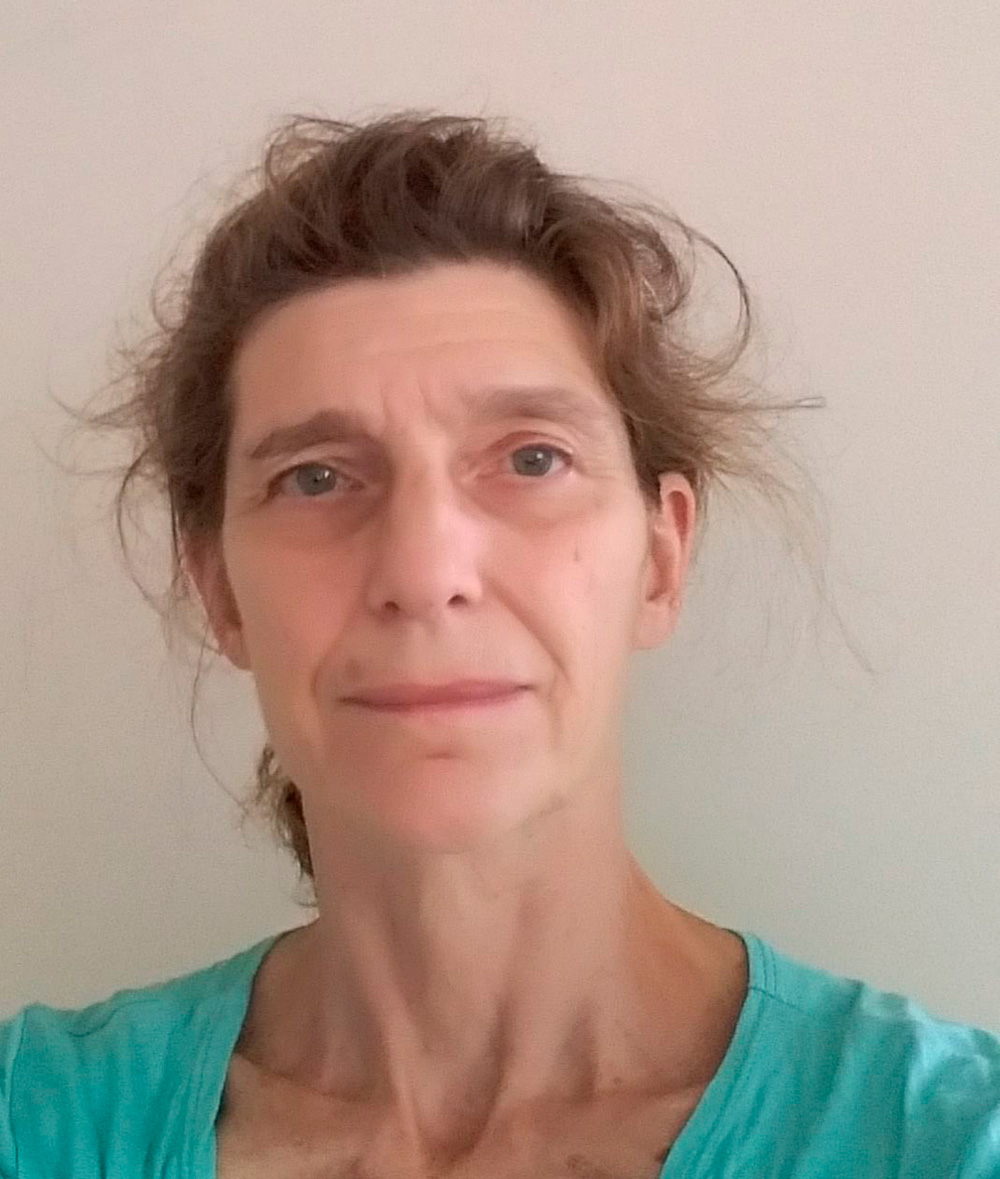
Fifth session: Ann Goldstein, translator of Elena Ferrante, the most wonderfulest writer ever, unless you’re me and think she’s fine sure okay whatever, and also of Primo Levi, who was human but wrote like a god. Goldstein was chaired by Damien Wilkins, which was a good thing, because while she was erudite and lovely and full of deep wells of visible intellect, she was also the most closed and nervous human being I’ve seen on a stage in a long time. “The term celebrity translator is sort of an oxymoron”, she said early on, and you could tell she meant, “Why are you all here?” I really liked her. Wilkins did a noteworthy job of always having another question ready to hand without seeming to be always prompting her to talk, though in fact he was.
There was a lot of very interesting detail on the process of translation, and its similarities to editing– Goldstein holds down a position as one of the world’s best regarded translators in her spare time, spending her days editing at the New Yorker. (I could have used some New Yorker stories.) The comment which particularly struck me was in answer to a question on the challenges of powerful or beautiful or narratively crucial passages. Does she have to gear up specially for those?
No she does not. They’re just sentences to translate, like all the other sentences. Translation challenges turn up when the languages don’t mesh easily. The ones you need to gear up for might be the ones the reader never notices. Not being noticed, I think, is dear to Goldstein’s heart.

And lastly, with a sense that concentration had better not be asked of me, I fronted up to hear Omar Musa talking with Selina Tusitala Marsh. Have I mentioned every session I went to all day was packed? Not this one so much. It was the first time I looked around and thought, hell, comrades, where are you all, this is a little embarrassing. David Hare was doing his session in the main theatre. Which was the obvious place for me to be as well, but friends had told me the Musa/King Kapisi session I missed the night before was, bloody of course it was, the best thing since that other thing I missed. I was not missing Musa twice. He did not disappoint. He and Marsh were ideally matched, being strong voiced, not to say exuberant personalities, both so utterly confident in their identities that you could imagine cultural pressures for brown people to sit down and shut up didn’t exist. I felt more awake the longer they talked.
“The exciting thing about Australian literature at the moment is that so many stories haven’t been written yet, because so many voices have been kept on the margins. Australia is a society in flux. We’re trying to find out who we are.” Some of the bumps in this process made for great anecdotes, though not happy ones; Musa and Marsh were both at last year’s Australia/New Zealand literary festival in London, which in addition to being a sublimely mismanaged dog’s breakfast of an oddity, appears to have featured some Grade-A self-oblivious racist banter from leading Australian political figures.
Great discussion of Musa’s riotous and phantasmagorical-sounding first novel, which cannot be taught in schools, though it clearly belongs there, because the various things he refused to compromise with his publishers on include Bad Words. Very good question from the audience – okay, from my friend Sarah, who teaches – as to whether he’d consider a schools edition with the Words of Too Much Colour replaced with Other Words. She was not presenting this as desirable in itself, just a way around a restriction which isn’t going anywhere, and the impressive thing was that Musa hated the idea, but thought about it anyway. He didn’t make up his mind on the spot. He did mutter, “Or schools could fucking work out that kids fucking talk that way”.
The novel, Here Come The Dogs, is on my have-to-buy-it-now list, because of course it is.
Musa did one poem, by which I mean he half-chanted, half-sang it, and I wanted more.
The tattoo on his wrist is a Malaysian term for storyteller. Literally translated it means “dispeller of sorrows”.



